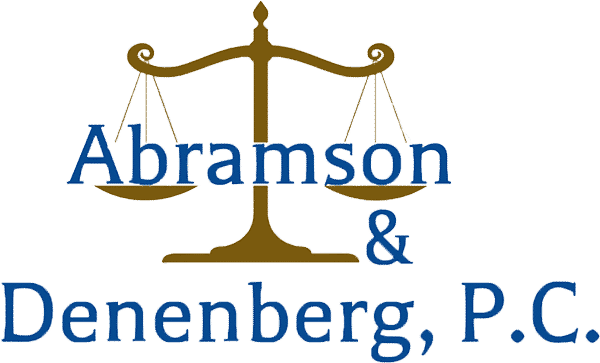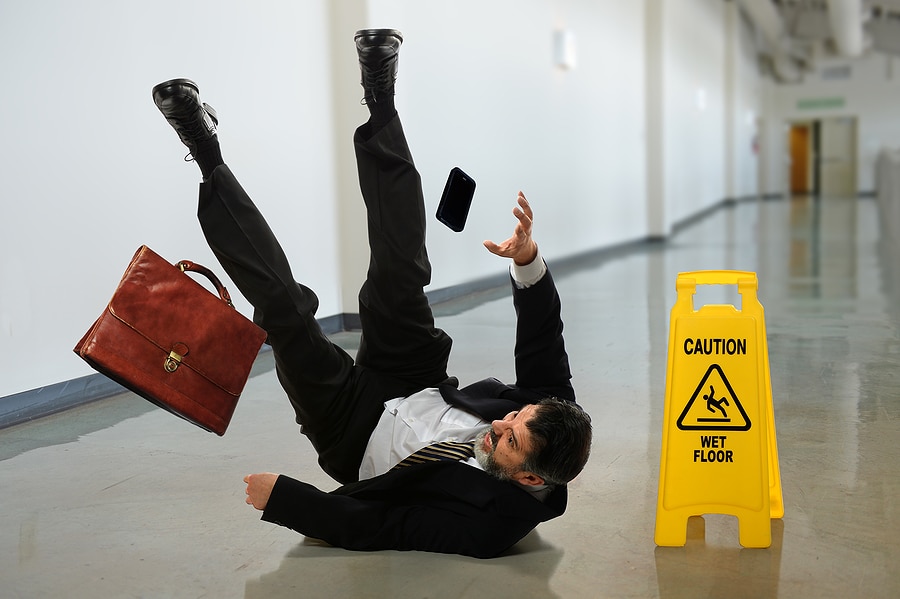What is the Relationship Between Personal Injury Laws and Slips and Falls?
Slip and fall accidents are personal injury cases that fall under the umbrella of premises liability law. This area of law dictates the duties of property owners and the rights of individuals who suffer injuries on their premises. Public property is subject to more stringent safety standards than private homes, and owners of locations that the public frequents have specific responsibilities to their visitors. If you’ve been hurt after slipping and falling in a public place, a skilled personal injury lawyer can help determine whether you can pursue legal action against the property owner.
How and Where Can Slip and Fall Accidents Occur?
Slip and fall accidents can happen anywhere: sidewalks, parking lots, stairwells, and other commonly traversed public locations. For this reason, they are one of the most common types of personal injury claims. At the most basic level, a slip and fall accident occurs when someone loses their footing due to an uneven, slick, or cluttered surface. When the individual trips or slips, they may fall to the ground, hit nearby objects, or take action in an attempt to stop their fall, all of which can result in significant and painful injuries.
Public locations where slips and falls frequently occur include:
- Grocery stores
- Restaurants and bars
- Parking garages
- Retail stores and shopping malls
- Hotels and resorts
- Workplaces
- Gyms
- Swimming pools
- Parks and playgrounds
- Churches and other houses of worship
What Are the Responsibilities of Public Property Owners in Pennsylvania?
When someone owns a property, they are legally obligated to keep that location in a reasonably safe condition to protect those who may visit it. When a property owner invites the public onto their premises, they must take even greater precautions to safeguard the well-being of their guests or customers. The law divides the duty of care owed to visitors into three categories based on the visitor’s status:
- Trespassers: Property owners owe the least duty of care to trespassers, typically only needing to avoid intentional harm. However, if an owner is aware that trespassers frequently enter the property, they may need to warn of known hazards that could cause serious injury
- Licensees: These visitors enter the property for their own purposes but with the owner’s permission. Examples include a social guest invited to a private home or a mail person delivering a package. Property owners must warn licensees of known dangers that might not be obvious to a visitor but do not have an obligation to inspect for unknown hazards
- Invitees: These are individuals invited onto the property for the owner’s benefit, such as customers in a store. Most visitors to public properties would fall under the category of invitee. Property owners owe the highest duty of care to invitees. To protect the invitees’ safety, the owner must regularly inspect the property for hazards, address dangerous conditions promptly, and provide adequate warnings for known risks
What Rights Do Victims of Slip and Fall Injuries Possess?
If an individual experiences a slip and fall accident in a public location in Pennsylvania, they may have the right to seek compensation from the property owner as long as they were not 50% or more responsible for the accident. However, to successfully recover a settlement, the plaintiff in a slip and fall claim must demonstrate that the property owner acted negligently. The main elements of establishing negligence include:
- Describe the duty of care: The plaintiff must show that the property owner owed a duty of care to them based on their status
- Explain the breach of duty: By failing to maintain their premises properly or adequately warn the individual of dangers, the owner breached their responsibilities to the plaintiff
- Show causation: The victim needs to provide a clear link between the owner’s breach of duty and their slip and fall accident and injuries
- Provide evidence of damages: To recover a settlement, the plaintiff must present proof of losses caused by their injuries, such as lost income or medical costs
To maintain the right to take legal action against a negligent public property owner, victims of slip and fall accidents need to be aware of Pennsylvania’s statute of limitations for personal injury claims. Under the statute of limitations, victims and their families have two years from the accident date to file their claim. While certain rare situations may toll or extend this time limit, it is essential to consult a knowledgeable personal injury lawyer as soon as possible after your accident to ensure your right to file a claim is protected. Although two years can seem far in the future, thoroughly investigating the case and building a strong claim can take significant time. By seeking legal guidance early, you give your lawyer access to important evidence and witnesses that may not be available after more time has passed.
What is the Doctrine of “Hills and Ridges” and How Could it Impact a Slip and Fall Claim?
Pennsylvania often experiences unpredictable winter weather that can make sidewalks and walkways treacherous to navigate, and falls are not uncommon. The state’s doctrine of “hills and ridges” could affect your claim if your fall was caused by snow or ice. The doctrine states that there is no liability for general slippery conditions alone. Dangerous natural accumulations of snow or ice in ridges or hills must be present and pose an obstruction to travel. Property owners are also not obligated to remove snow and ice while a storm is still ongoing. They have a reasonable time after the storm ends to clear their property.
While this doctrine may appear to shield property owners from most cases involving slippery conditions, consulting with a knowledgeable slip and fall attorney is essential to determine if you may have a valid claim. Several circumstances, such as faults in the underlying walkway or actions by the owner that affected accumulation, could result in a successful claim. However, time is of the essence in these cases because the exact conditions at the time of the fall need to be documented to support the claim.
How Can a Skilled Lawyer Assist You Following Your Slip and Fall Accident?
Slips and falls can result in serious injuries or even death. At Abramson & Denenberg, we believe negligent property owners should be held responsible for their harmful actions. We fight to recover maximum compensation for our clients so they can regain financial stability and get the current and future medical treatment they need. To discuss your case with a compassionate, experienced attorney, contact our Philadelphia law firm today at 215-398-7066.

